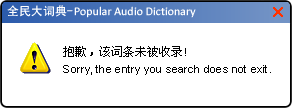自治区【zì zhì qū】
autonomous region
[名]中国民族自治地方中相当于省的行政区域,有五个自治区:内蒙古自治区、新疆维吾尔自治区、广西壮族自治区、宁夏回族自治区、西藏自治区
 中国有五个省级民族自治区。 There are five autonomous regions at provincial level in China.
自主【zì zhǔ】
decide for oneself; act on one’s own
[动]自己作主﹐不受别人支配
 现代社会提倡男女婚姻自主。 Self-determination in marriage is advocated in modern society.
自作自受【zì zuò zì shòu】
suffer from one’s own actions; lie in the bed one has made; stew in one's own grease; stew in one's own juice
[成]自己做错了事,自己承受不良后果
 他是自作自受,怪不得别人。 He had to stew in his own juice and could not blame others.
|
宗【zōng】
1. ancestor; clan 2. religion 3. principal aim
[名]1、祖先,家族 2、宗教 [形]3、主要的
 中国人用“列祖列宗”称呼所有祖先。 By “Lie Zu Lie Zong”, Chinese refer to all their ancestors.
 你能跟我谈谈你的宗教信仰吗? Can you tell me something about your religion?
 我们办事的宗旨是全心全意为人民服务。 Our principal aim is to serve the people heart and soul.
宗教【zōng jiào】
religion
[名]相信世界上存在着超自然力量的社会意识形态,认为这种力量主宰着自然和社会,因而对之敬畏和崇拜
 道教是中国本土宗教。 Taoism is a native religion of China.
宗派【zōng pài】
sect; faction
[名]政治、学术、宗教等方面的派别,也指少数人为自身利益而形成的小集团
 宗教上的不同见解会产生许多宗派。 Religious differences gave birth to many sects.
|
宗旨【zōng zhǐ】
objective; aim; goal
[名]主要的目的和意图
 慈善团体的宗旨是帮助人们实行自助。 This charity aims to help people help themselves.
综合【zōng hé】
1. synthesize 2. synthetic; comprehensive; multiple; composite
[动]1、把分析过的对象或现象的各个部分、各属性联合成一个统一的整体 [形]2、不同种类或性质的事物组合在一起
 他综合各种金属的优点,研制出超强硬度的复合材料。 By synthesizing all the advantages of various metals, he developed a composite material of superior hardness.
 电影制作是一种综合的艺术。 Film producing is a kind of comprehensive art.
棕色【zōng sè】
brown
[名]像鬃毛那样的红褐色
 棕色是此次服装设计的主色调之一。 Brown is the predominant color of these fashion designs.
|
